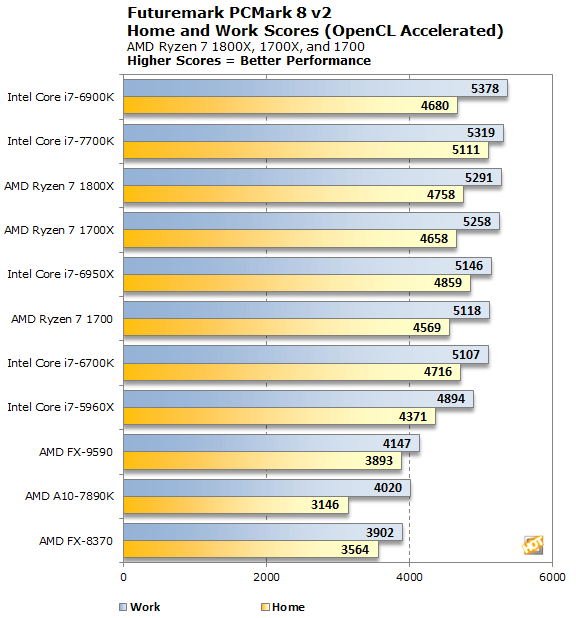AMD Ryzen Review: Ryzen 7 1800X, 1700X, And 1700 - Zen Brings The Fight Back To Intel
Test System Configuration Notes: When configuring our test systems for this article, we first made sure all firmware was up to date, then we entered their respective system BIOSes / UEFI and set each board to its "Optimized" or "High performance" defaults. We then saved the settings, re-entered the BIOS and set the memory frequency to the maximum officially supported speed for the given platform (without overclocking). The SSDs were then formatted, and the latest build of Windows 10 Pro x64 was installed.
The AMD Ryzen 7 1800X Installed In A Gigabyte Aorus AX370-Gaming 5 Motherboard
When the Windows installation was complete, we fully updated the OS, and installed all of the drivers necessary for our components. Auto-Updating and Windows Defender were then disabled, and we installed all of our benchmarking software, performed a disk clean-up, and cleared any temp and prefetch data. Finally, we enabled Windows Quiet Hours and let the systems reach an idle state before invoking a test.
Also note, that to ensure AMD's SenseMI technology was performing to its full potential, the Ryzen-powered systems used Windows' High Performance power profile.
|
System 1: | System 2: | System 3: | System 4: |
|
We began our testing with the latest version of SiSoftware's SANDRA 2016 SP3, the System ANalyzer, Diagnostic and Reporting Assistant. We ran four of the built-in sub-system tests that partially comprise the suite with AMD's Ryzen 7 1800X processor (CPU Arithmetic, Multimedia, Cache and Memory, and Memory Bandwidth). All of the scores reported below were taken with the CPU running at its default settings, with 16GB of DDR4-2933 RAM running in dual-channel mode on the Gigabyte Aorus AX370-Gaming 5 X370-based motherboard.
The AMD Ryzen 7 1800X performed well according to SANDRA. It trailed the Core i7-5960X by small percentages, but overall the numbers looks good. Memory bandwidth was in the 33GB/s second range, and the processor and multi-media scores are competitive with some faster, more expensive processors. There were some slight issues with longer memory latencies with larger data sets, but nothing was too out of line.
|
PCMark 8 v2 is the latest version in Futuremark’s series of popular PC benchmarking tools. It is designed to test the performance of all types of systems, from tablets to desktops. PCMark 8 offers five separate benchmark tests -- in addition to battery life testing -- to help consumers find devices that offers the perfect combination of efficiency and performance for their particular use case.
This latest version of the suite improves the Home, Creative and Work benchmarks with new tests using popular open source applications for image processing, video editing and spreadsheets. A wide variety of workloads have also been added to the Work benchmark to better reflect the way PCs are used in enterprise environments. These tests can be run with or without OpenCL acceleration. We chose to run with OpenCL acceleration enabled to leverage all of the platforms’ available CPU and GPU compute resources…

Note, we've got AMD Ryzen 7 1700X and Ryzen 7 1700 numbers in the rest of the benchmarks moving forward. In PCMark, all of the high-end processors are relatively tightly groups. Not all of the tests in PCMark are heavily multi-threaded, so single-thread performance is important too -- as is storage and memory performance. Overall, the Ryzen 7 series processors trailed only the Core i7-7700K and Core i7-6900K, but the margins separating the processors was relatively small.











